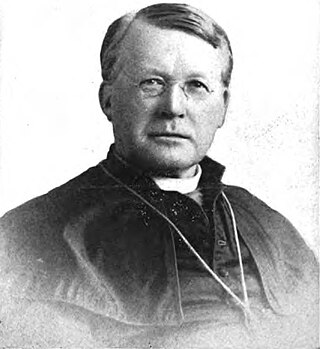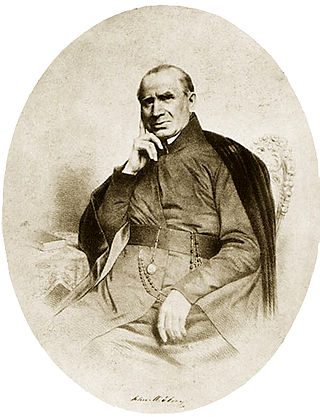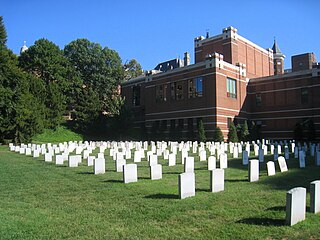Related Research Articles

Anti-Catholicism is hostility towards Catholics and opposition to the Catholic Church, its clergy, and its adherents. At various points after the Reformation, some majority Protestant states, including England, Northern Ireland, Prussia, Scotland, and the United States, turned anti-Catholicism, opposition to the Pope (anti-Papalism), mockery of Catholic rituals, and opposition to Catholic adherents into major political themes and policies of religious persecution. Major examples of groups that have targeted Catholics in recent history include Ulster loyalists in Northern Ireland during the Troubles and the second Ku Klux Klan in the United States. The anti-Catholic sentiment which resulted from this trend frequently led to religious discrimination against Catholic communities and individuals and it occasionally led to the religious persecution of them. Historian John Wolffe identifies four types of anti-Catholicism: constitutional-national, theological, popular and socio-cultural.

John Dawson Gilmary Shea was a writer, editor, and historian of American history in general and American Roman Catholic history specifically. He was also a leading authority on aboriginal native Americans in the United States. He is regarded as the "Father of American Catholic History".

The Catholic Church in Europe is part of the worldwide Catholic Church in full communion with the Holy See in Rome, including represented Eastern Catholic missions. Demographically, Catholics are the largest religious group in Europe.
John Altham, also known as John Gravenor, was a British Jesuit missionary who came to North America to preach to the Native Americans.

Francis de Sales Brunner C.PP.S., in his native German Franz Sales Brunner, was a Roman Catholic missionary priest from Switzerland. Invited to the United States by Bishop John Baptist Purcell of Cincinnati, Brunner and his fellow Missionaries of the Precious Blood labored primarily among the German-speaking Catholics of Ohio. He founded several missions there. In 1850, Brunner built the Shrine of the Sorrowful Mother in Bellevue, Ohio, the oldest Marian shrine east of the Mississippi. It continues to be staffed by the Missionaries of the Precious Blood.
Eugene Franklin Rice Jr. was an American historian specializing in the Church Fathers, Early Modern Europe, and Western homosexualities.
John Connelly is an American historian and professor at the University of California, Berkeley. His interests include modern East and Central European history, comparative education and the history of nationalism.

Thomas Albert Andrew Becker was an American prelate of the Roman Catholic Church. He served as the first bishop of the Diocese of Wilmington (1868–1886) and the sixth bishop of the Diocese of Savannah in Georgia (1886–1899).
Thomas C. Reeves is a U.S historian who specializes in late 19th and 20th century America.
John Tracy Ellis was a Catholic Church historian and priest, born and raised in Seneca, Illinois, USA.

John McElroy was a Jesuit priest who founded Catholic schools in the United States. After emigrating to the United States in 1803, McElroy enrolled in Georgetown University in 1806, the same year in which he joined the Society of Jesus as a lay brother. His brother Anthony also became a Jesuit. McElroy assumed the management of Georgetown's financial affairs. He was ordained a priest in 1817. In 1822 he was sent to Frederick, Maryland, where he was to remain for 23 years as pastor of St. John the Evangelist Catholic Church in downtown Frederick. It was in Frederick that he founded St. John's Literary Institution. During the Mexican–American War, McElroy served as an Army chaplain, and on his return from Mexico he went to Boston, where he established Boston College and Boston College High School.

Francis Xavier Gartland was an Irish-born American prelate of the Roman Catholic Church. He served as the first bishop of the Diocese of Savannah, covering Georgia and Eastern Florida, from 1850 until his death in 1854.

The Church of St. Agnes is a parish church in the Roman Catholic Archdiocese of New York, located at 143 East 43rd Street, Manhattan, New York City. The parish was established in 1873.
John H. Van Engen is an American historian who focuses on the religious and intellectual culture of the European Middle Ages. He is Andrew V. Tackes Professor Emeritus of Medieval History at the University of Notre Dame.
William B. Taylor is a historian of colonial Mexico, who held the Sonne Chair of History at University of California, Berkeley until his retirement. He made major contributions to the study of colonial land tenure, peasant rebellions, and many aspects of colonial religion in Mexico. In 2007 he received the Distinguished Service Award of the Conference on Latin American History, the highest honor of the professional organization of Latin American historians.

John William O'Malley was an American academic, Catholic historian, and Jesuit priest. He was a University Professor at Georgetown University, housed in the Department of Theology and Religious Studies. O'Malley was a widely published expert on the religious history of Early Modern Europe, with specialities on the Council of Trent, the Second Vatican Council, and the First Vatican Council.

The Jesuit Community Cemetery on the campus of Georgetown University in Washington, D.C., is the final resting place for Jesuits who were affiliated with the university. It was first established in 1808 and was moved to its present location in 1854.
Ulrich L. Lehner is the Warren Foundation Professor of Theology at the University of Notre Dame. He is a trained philosopher, theologian and historian.
Jay P. Dolan was an American historian and former Catholic priest who specialized in the history of Catholicism in the United States. He spent almost his entire career at the University of Notre Dame (1971–2003), where he founded and directed the Cushwa Center for the Study of American Catholicism.
References
- ↑ "Award Established for Catholic Historical Book", Canadian Register, April 28, 1945.
- ↑ "The John Gilmary Shea Prize". American Catholic Historical Association. Archived from the original on 2021-09-24.
- ↑ Walenceus, Lisa; Basile, Joanna (October 23, 2010). "History Professor's Book Wins Three Major Prizes" . Retrieved 2021-09-23.